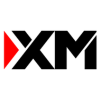Identify the best applications to trade on NASDAQ, a global electronic market and home to tech giants. Excel at trading with these applications, adapted for the dynamic NASDAQ market.
BEST STOCK BROKERS IN CANADA
The ranking of Best Stock Brokers in Canada has been carefully developed after testing platforms on fees, regulatory safeguards under IIROC, platform stability, mobile usability, depth of market access, and customer support, providing Canadian investors with a reliable guide to choosing a broker that allows them to trade shares confidently both on the TSX and beyond while ensuring that every transaction is executed with clarity and transparency.

Ranking Methodology
To compile the ranking, we rely on a professional criterion that follows these steps:
We test the platforms based on several basic parameters (see list).
We test the platforms based on ranking-specific parameters.
We ensure the results are accurate (consistency and absence of outliers).
We verify on social media and forums that our parameters are socially sound and that no relevant negative reviews exist.
We present and publish the ranking.
Basic Testing Parameters for Apps Included in the Ranking
They allow accounts to be opened by local clients, meaning we exclude platforms not available in certain countries.
Regulatory compliance and security.
Transparency, reputation, and data protection.
Total costs (commissions, spreads, non-trading fees, deposits/withdrawals).
User experience (UX/UI), stability, and performance (uptime, latency).
Platform and tools (charts, alerts, backtesting, mobile, desktop, API).
Execution and liquidity (order quality, slippage, depth).
Customer support (languages, coverage, response times).
Education and resources (guides, research, demos, simulators).
Specific Parameters for the Equities Ranking
Access to domestic and international markets (NYSE, Nasdaq, LSE, etc.).
Fundamental and corporate data (dividends, splits, events).
Fractional shares and extended-hours trading (pre/after-market).
Routing and order execution quality (PFOF, smart routing).
Stock lending/short selling (availability, rates, location).
Advanced order types (OCO, bracket, stop-limit with triggers).
Custody fees, currency conversion, and position transfer.
Margin and financing rates (levels, requirements, calls).
How to open an Investment Account
Once you’ve selected a provider from our ranking, opening your investment account in Canada is straightforward. The process is similar for stocks, bonds, ETFs, futures, indices, options, commodities, cryptocurrencies or real estate.
Go to the official website: Click “Open account” or “Get started”.
Complete the registration form: Provide your name, email, phone and country. You’ll need government-issued ID (passport or driver’s licence) and proof of address, such as a Hydro-Québec electricity bill or a bank statement from the last 3 months.
Await approval: Some accounts are approved instantly, others within a few days.
Set preferences: Once approved, configure your risk limits and trading settings.
Fund your account: Deposit by card, bank transfer or e-wallet.
And you’re ready to invest.
YOU MAY ALSO BE INTERESTED







